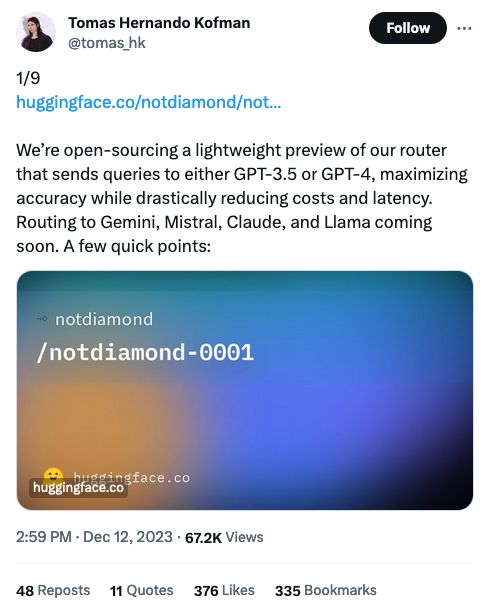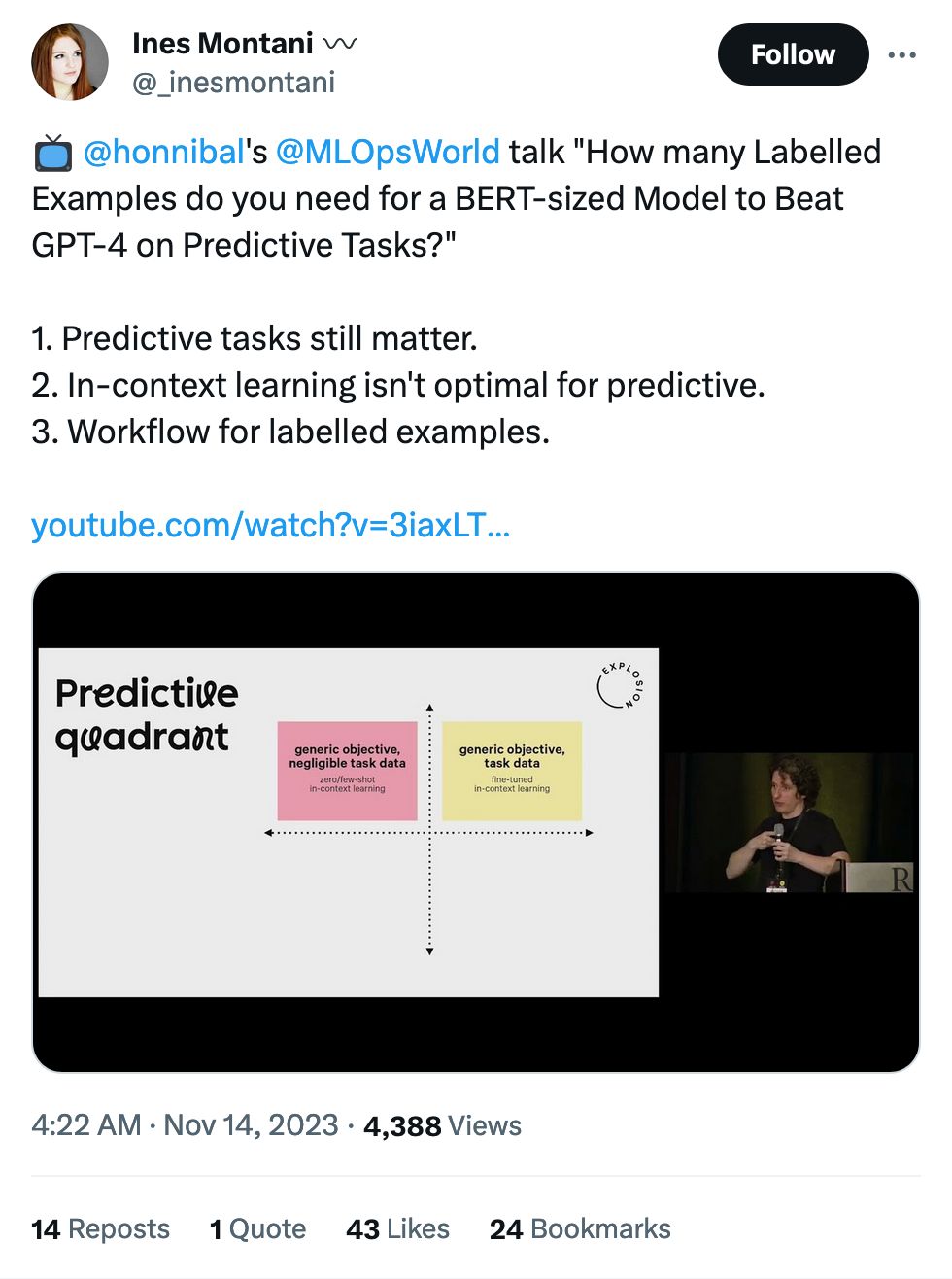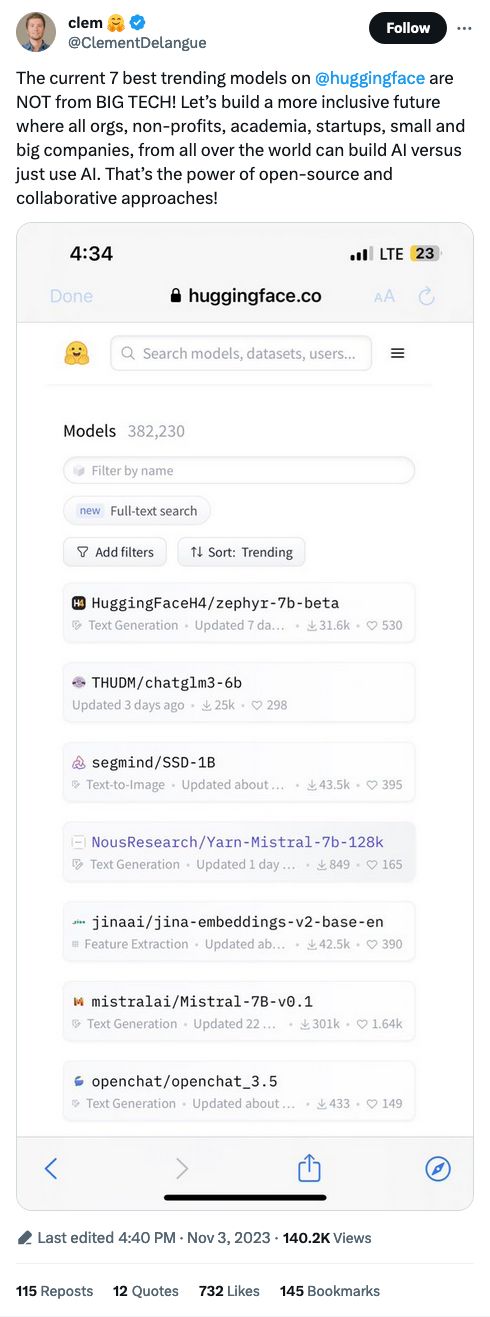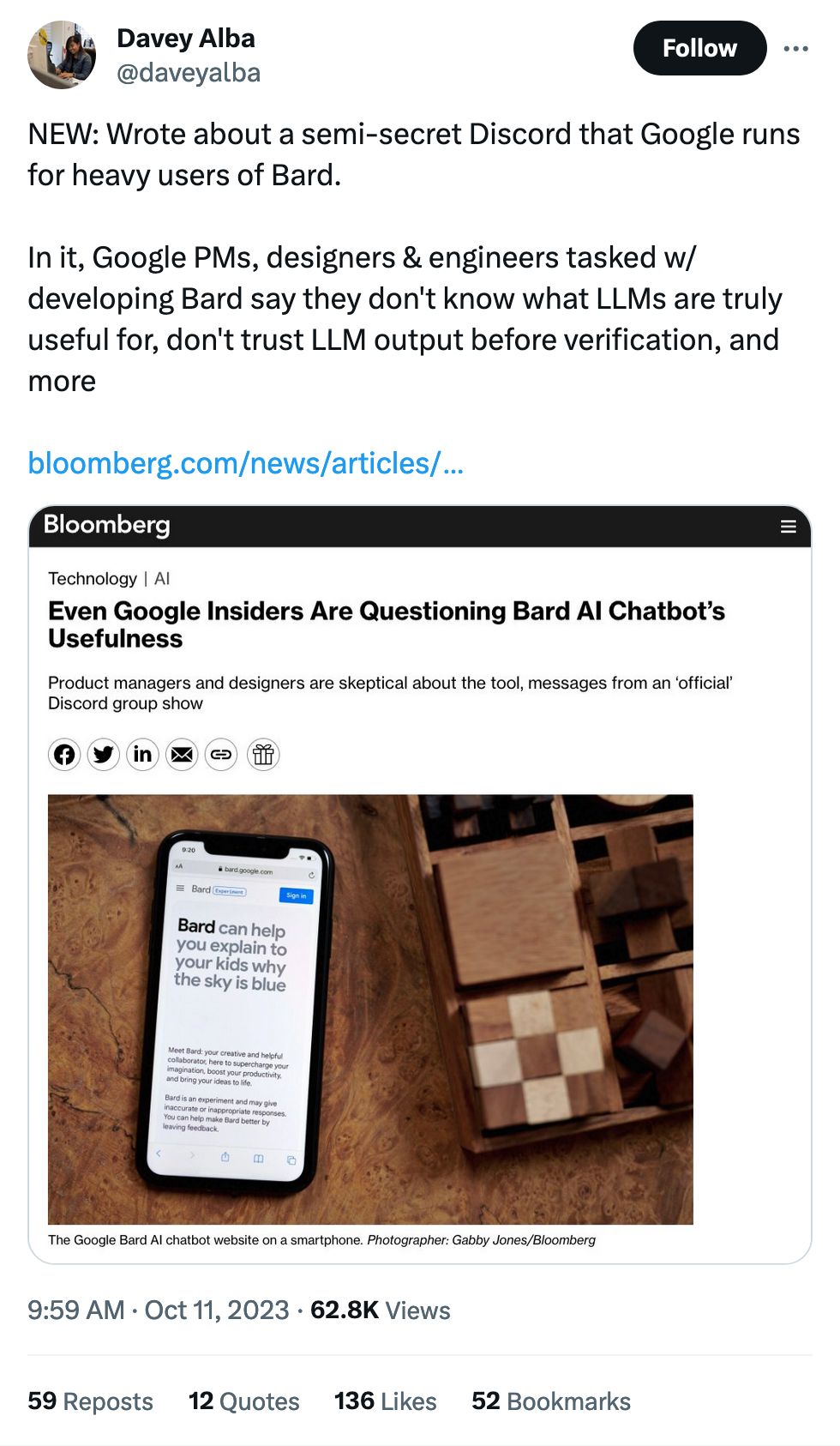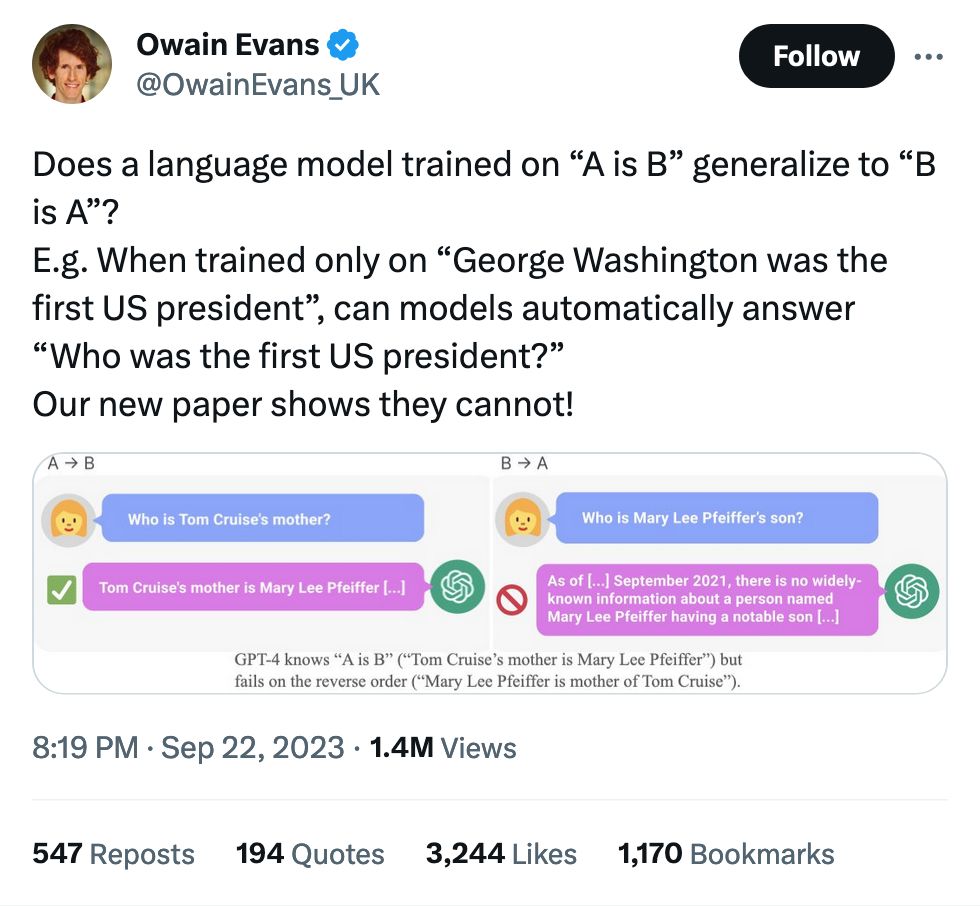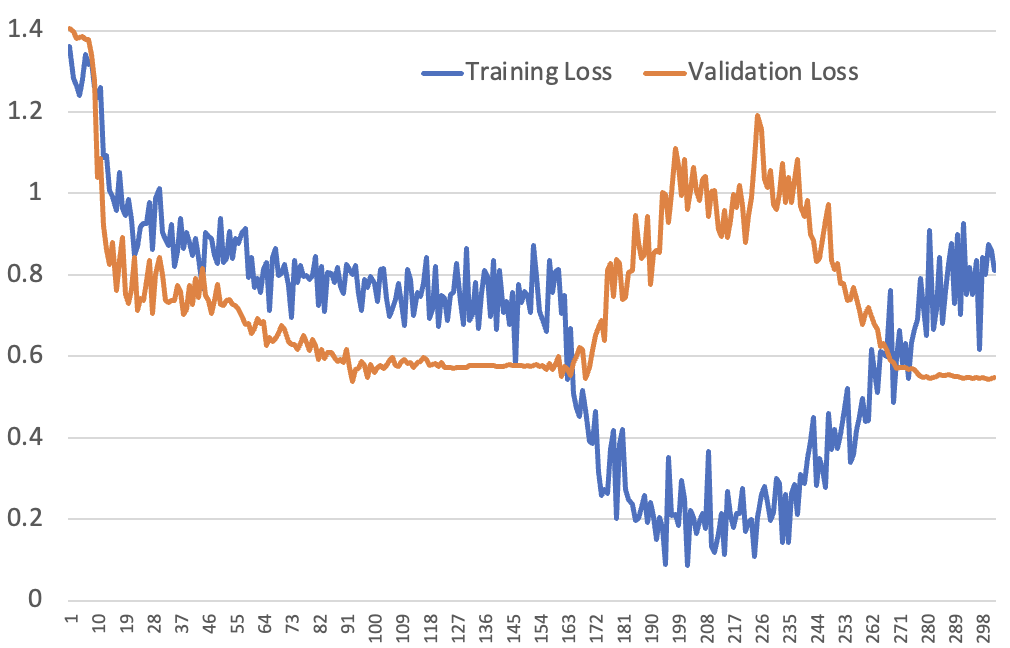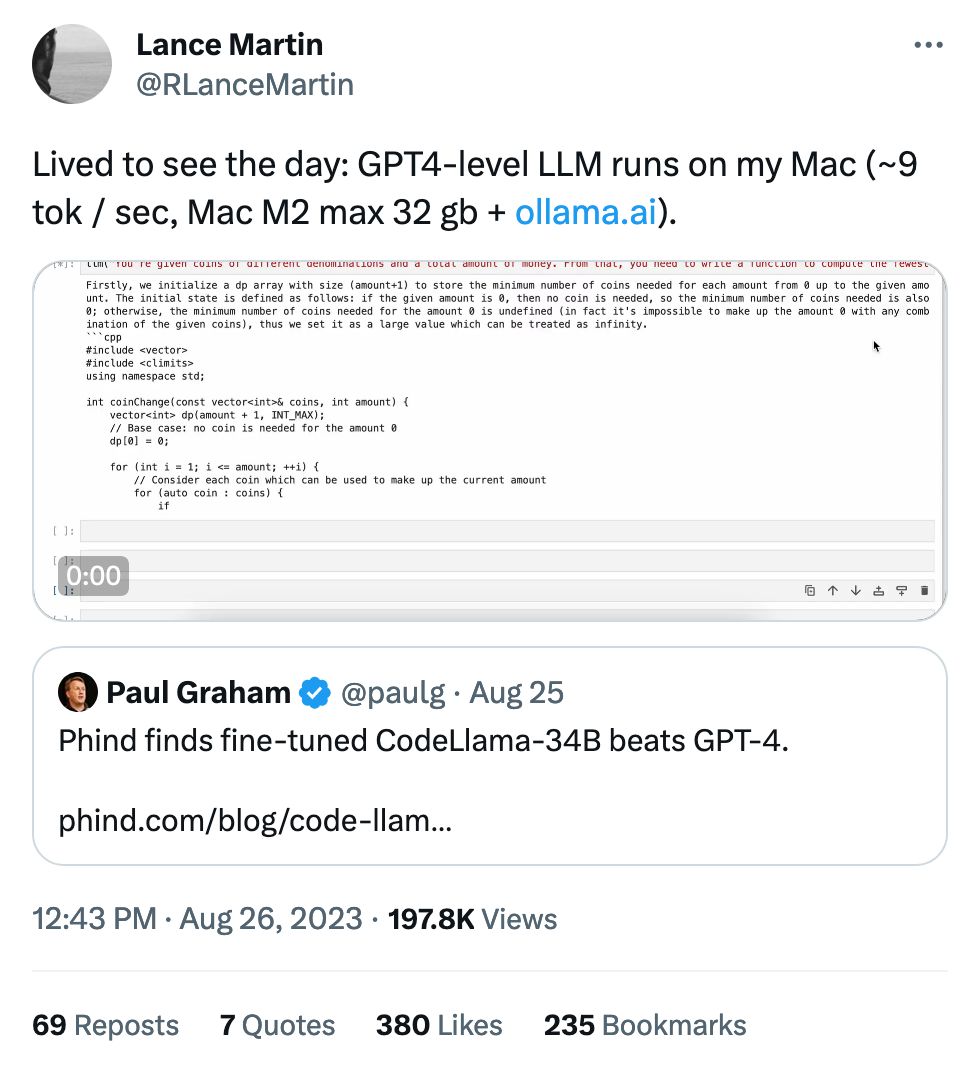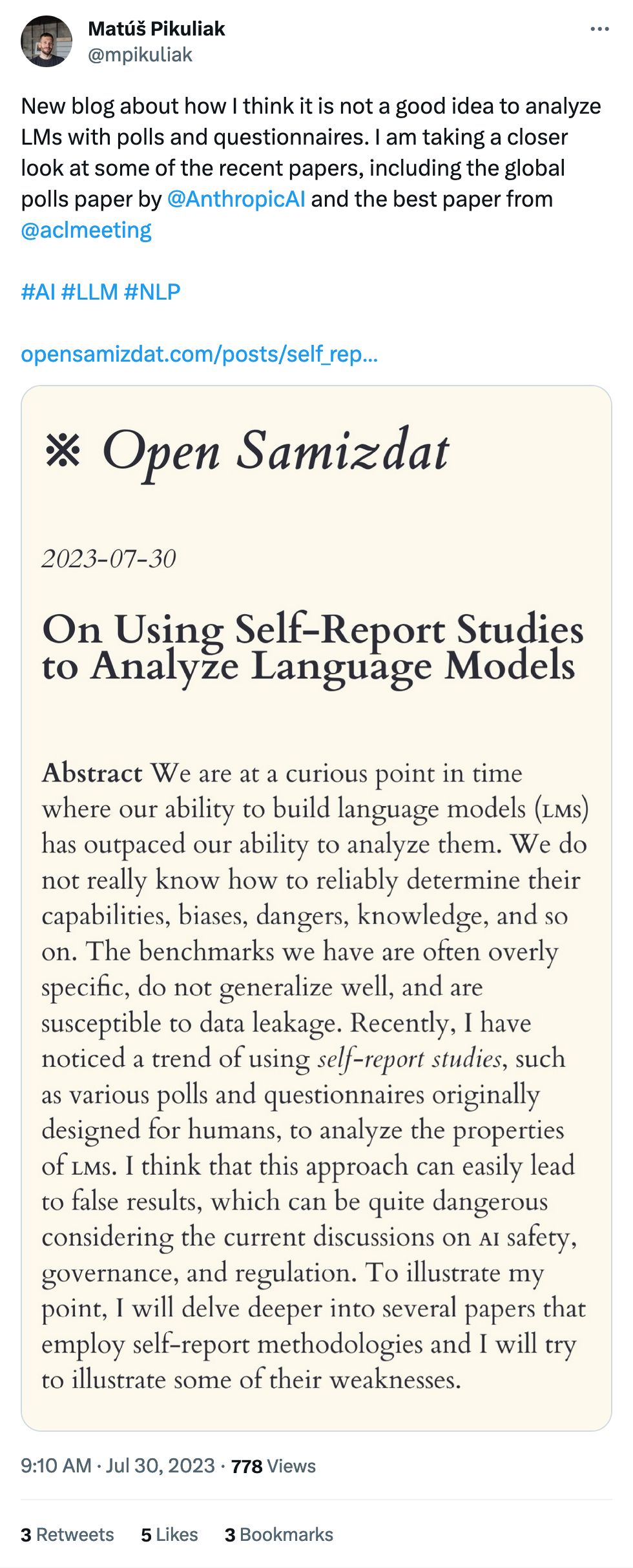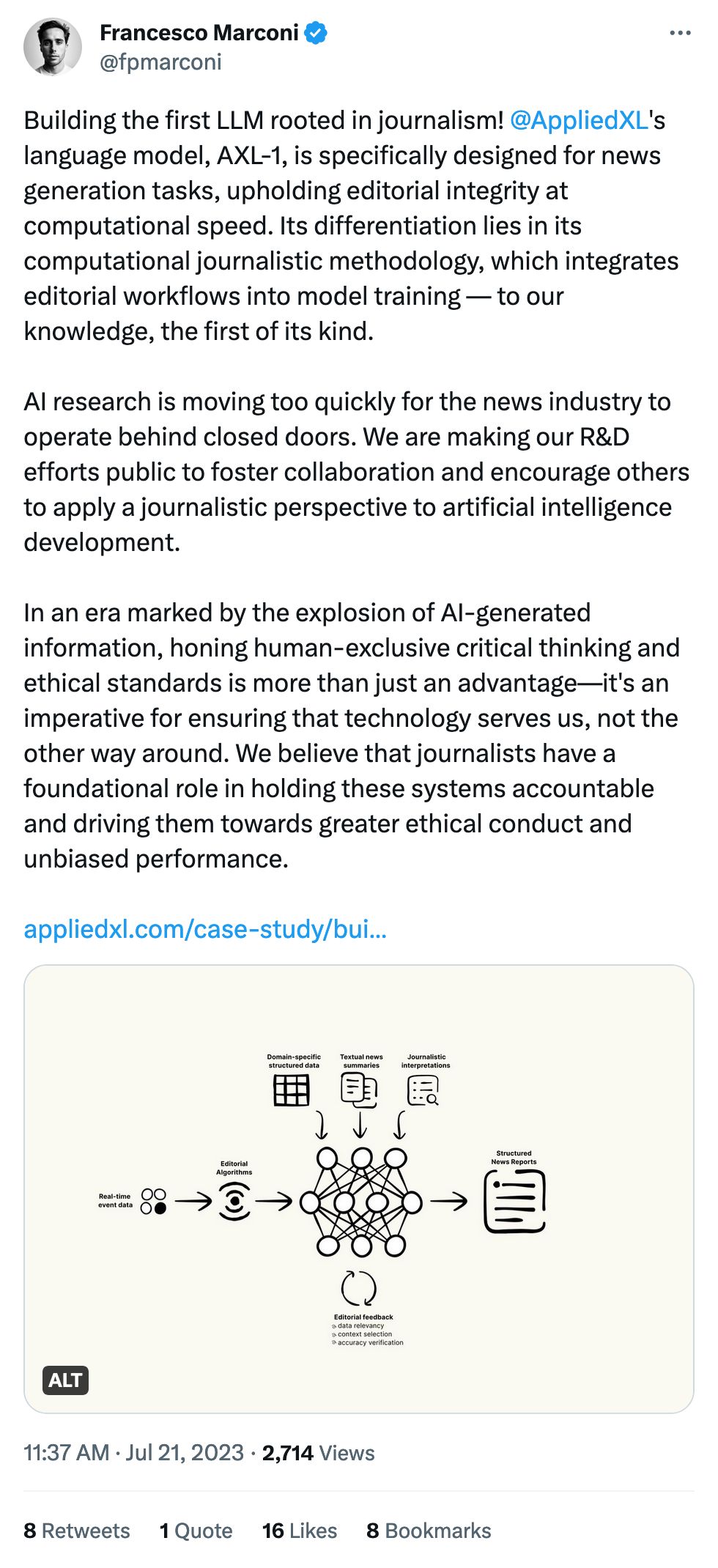Many, many, many of the papers that I link to here are about how a model is performing. But unless it's the ones where GPT got into MIT or became king of doctors or masters of all law, most of the more fun recent papers have been about "self-report studies," where polls typically given to humans are given to LLMs instead:
I will discuss three high-profile papers that I believe might have some of these problems. I am not saying that everything about these papers is wrong or that these papers are bad overall (at least not all of them). Especially the first paper is quite good in my opinion. But I have my doubts about some of their findings and I think that pointing them out can illustrate some of these pitfalls.
This is great! This is how it should be!!! And what's that? You want sass?
I find the use of this tool to be a shaky idea right out of the gate. The authors of the paper claim that their work is based on the political spectrum theory, but I am not aware of any scientific research that would back the Political Compass. To my knowledge, it really is merely a popular internet quiz with a rather arbitrary methodology.
Go forth and read the paper itself (which I guess technically isn't a paper, but it's basically a paper)


